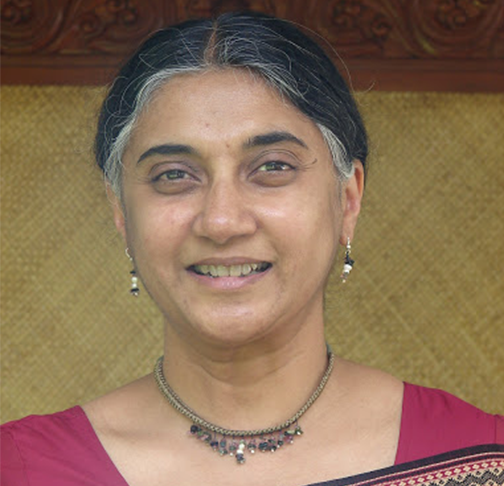Evolution is a race that has no finish line with the myriad lifeforms of the world constantly undergoing morphological and physiological changes just to keep up, to keep the eternal race going. Did you know that there are certain species of spiders that mimic ants? or that termites cultivate fungus inside their mounds or that most of the fig species have a unique species of fig wasp that exist in mutualism for survival? The wild realm aided by the process of evolution and natural selection holds an astonishing number of details that still elude human understanding. In part two of the conversation with Dr. Renee M. Borges, we dwell deep into these fascinating systems as she shares with us her experiences and challenges she encountered while conducting experiments out in the open, while also parallely introducing a beautiful world that coexists.
You can't stare at a computer screen or just read blogs to get inspiration. Inspiration comes to you by sitting on a bank of a river or in an open grass field.
ABOUT THE GUEST

Dr. Renee M. Borges Professor, Centre for Ecological Sciences, Indian Institute of Science, Bangalore
Dr. Renee Maria Borges is an evolutionary biologist and professor, pursuing research in the extremely lush and immersive field of Ecology, working majorly along the lines of evolutionary ecology of species interactions. She pursued her bachelor's and master's degrees in Zoology from University of Bombay, and further went on to pursue her Doctoral degree from the University of Miami, USA, working in Ecology, Evolution and Behavioural Science. Further from there, Dr. Borges held a visiting faculty position at the Wildlife Institute of India in Dehradun, and later also served as the deputy director of research at the Bombay National History Society. Subsequently, she went on to join the Centre for Ecological Sciences at the Indian Institute of Science, Bangalore, and is currently a professor there. Her research interests lie in the evolutionary ecology of species interactions, investigating the chemical and visual ecology of such interactions while also partaking in fundamental research towards practical applications. Her research has taken her to study the forests, jungles and myriad of ecologically rich systems across the world, including the forests of Panama, Costa Rica and the Western Ghats, exploring the intricate relationships that different species share in order to survive in the wild.



